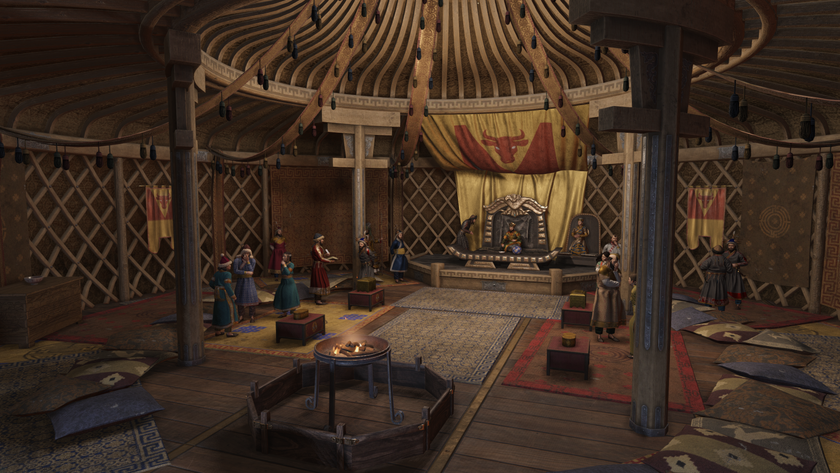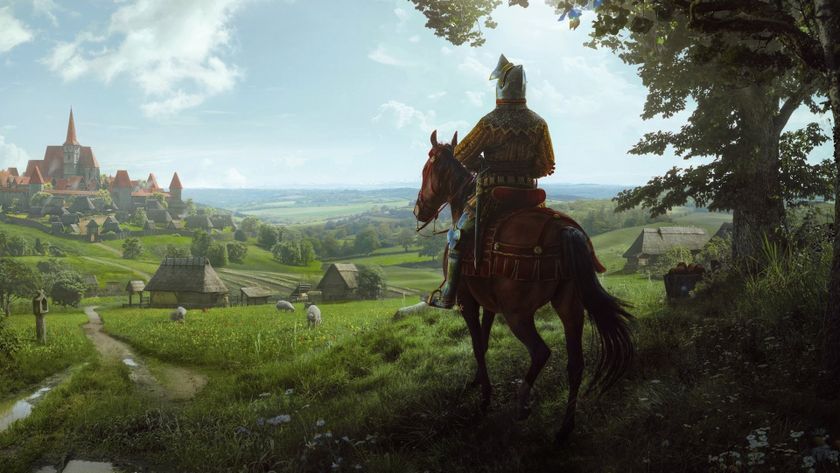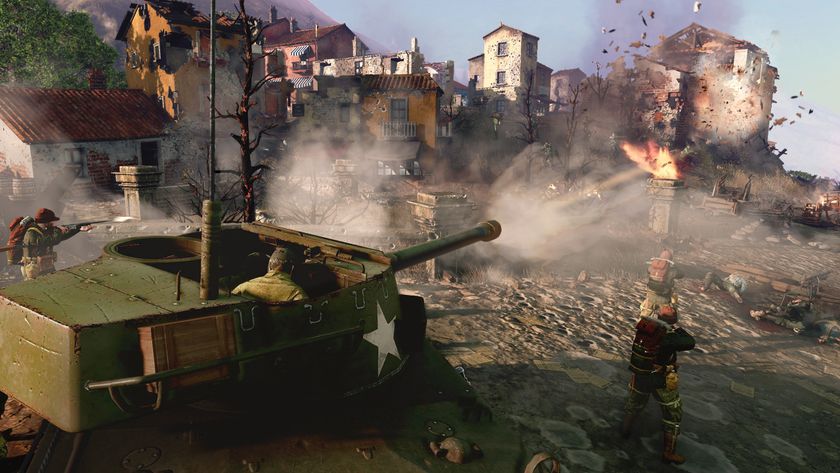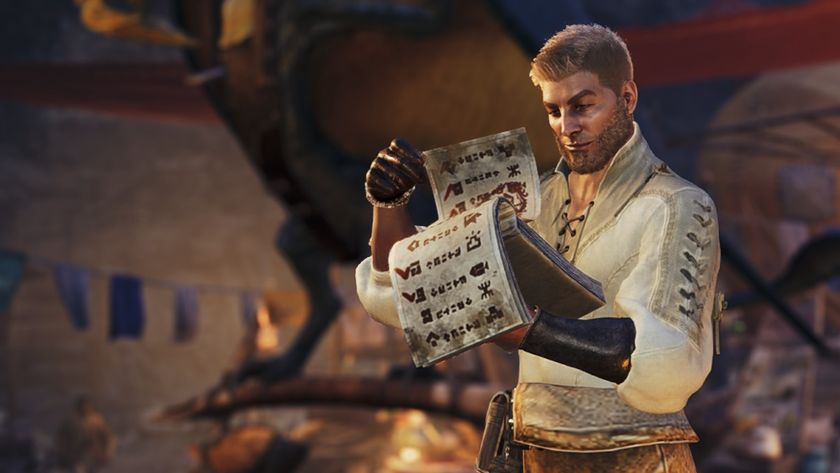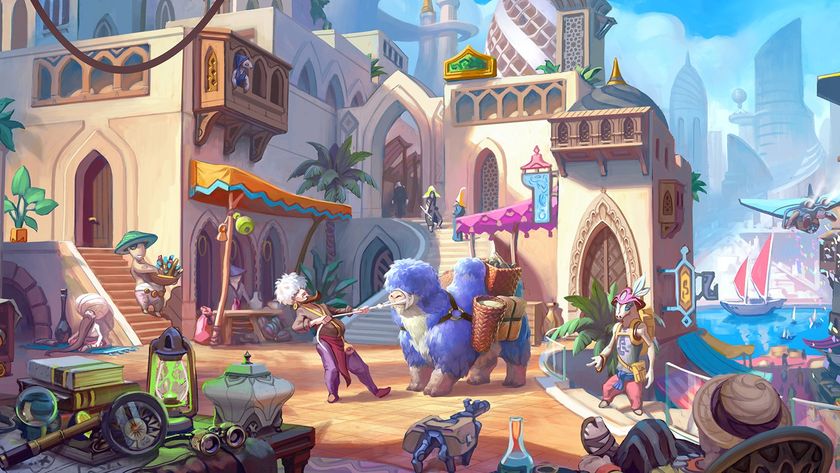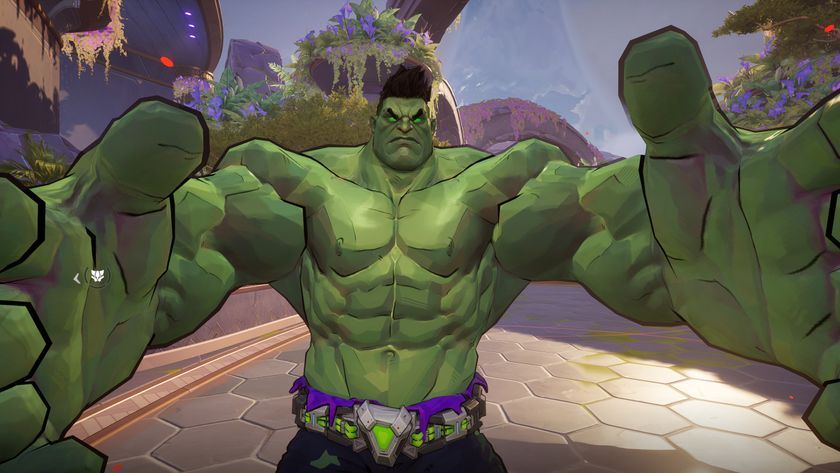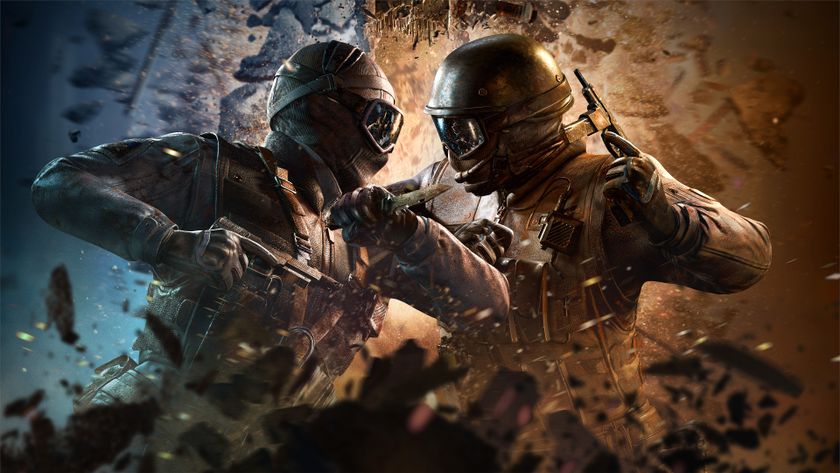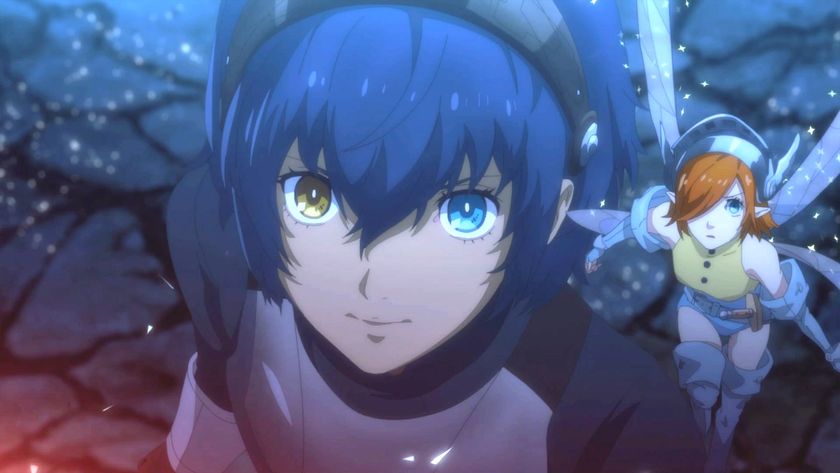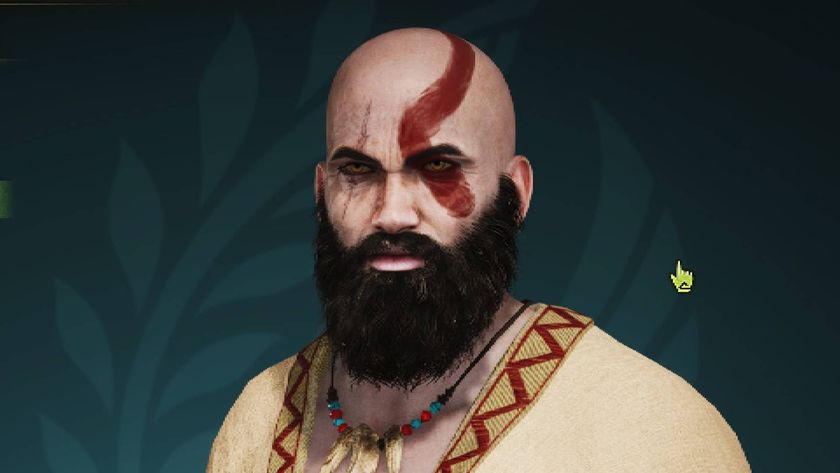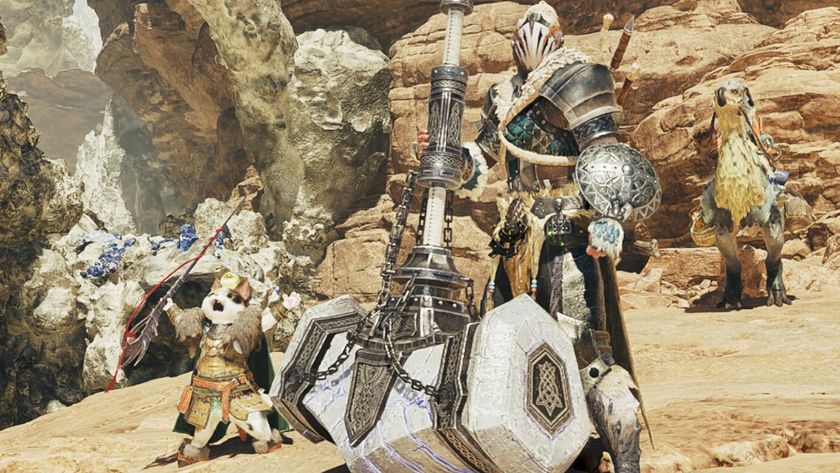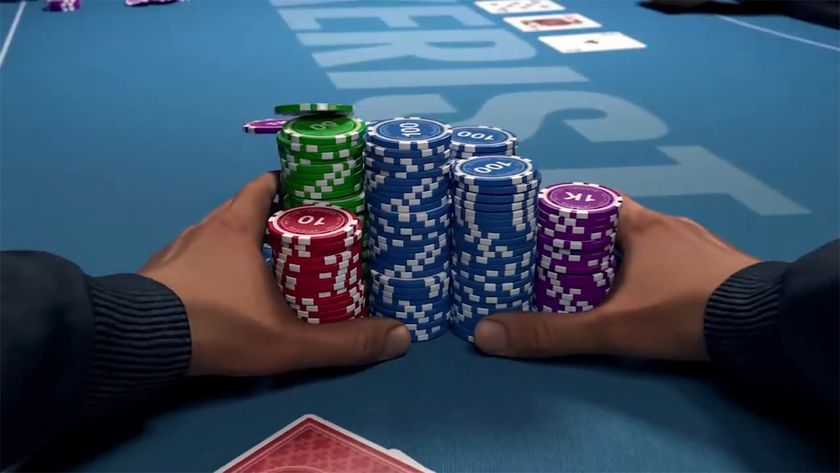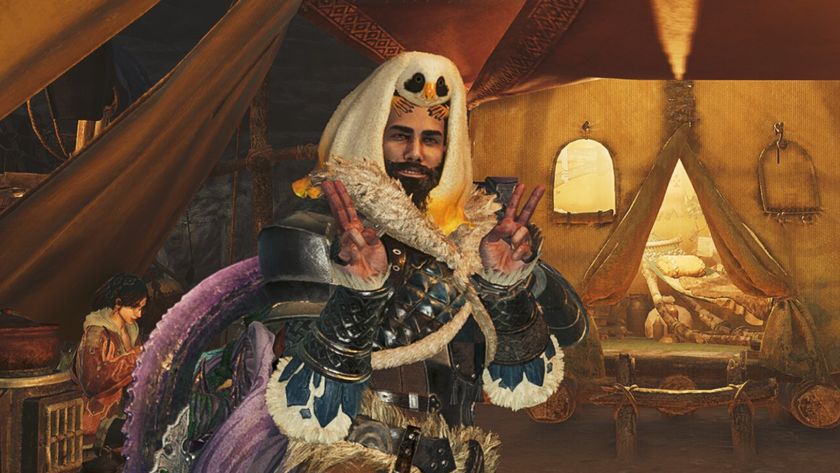Steam's new Yu-Gi-Oh game is barebones nostalgia
Duel Links delivers an awkward mix of new and old.
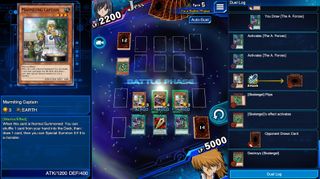
Behind Yu-Gi-Oh's goofy anime—starring characters with increasingly ridiculous haircuts that pose a genuine threat to public safety—is a wildly unique card game that's quietly kept Konami afloat for decades. I loved it when I was younger. I was a diehard Saturday morning viewer in elementary school, and I put countless hours into online versions of the card game in high school. But I don't love Yu-Gi-Oh! Duel Links, a mobile spinoff which recently came to Steam. It's a serviceable free-to-play card game, but in its pursuit of casual appeal and mobile viability, it's lost a lot of what makes Yu-Gi-Oh distinct.
Yu-Gi-Oh is a fast-paced, archetype-driven card game where one-turn kills are your bread and butter. Unlike Hearthstone and Magic: The Gathering, many Yu-Gi-Oh decks are expressly about flooding the board and winning in one turn. It is, by and large, OTK: The Game. Some decks are designed to stop these explosive strategies, but it's usually better to advance your own crazy combo. Which is where player skill comes in: building a flexible extra deck with tools to protect your combo, and knowing when to commit to a combo. That's how Yu-Gi-Oh is played. That's why it's fun. But due to huge rule changes, that is not how you play Duel Links.
Duel Links follows the 'speed duel' beginner format of 2016's Saikyo Card Battle, and I speak no hyperbole when I say it cuts the game in half. You put 20 cards in your deck instead of 40, start with 4,000 life points instead of 8,000, start with four cards in your hand instead of five, have one main phase instead of two, and have three board spaces instead of five. Duel Links also lacks Synchro, XYZ and Pendulum monsters, which severely limits how you can use your extra deck to make up for your deck's weaknesses.
Finally, the card pool is an all-over-the-place mix of old and new, so Duel Links' monster archetypes—like Six Samurai, Naturia, Gladiator Beast, Lightsworn, Dark World, and E-Hero—are missing crucial cards. These changes are so drastic that it makes more sense to think of Duel Links as an entirely different card game loosely based on Yu-Gi-Oh. It uses some newer cards, but it follows the 'tribute' format of the original series and feels even more restricted.
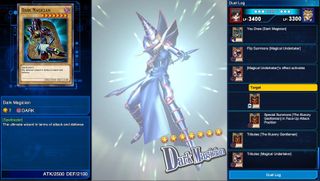
The gang's all here
While Duel Links is limited in some core areas, it's flavorful in others. For example, there are character-specific skills that can change the way you play. If you play as famously flamboyant antagonist Maximillion Pegasus, for instance, you can start the game with Toon World active. If you play as Yami Yugi, after you take 2,000 damage, you can draw a specific card from your deck. That's right: they quantified the heart of the cards. There are dozens of playable duelists with several unique skills, which serves to illustrate Duel Links' greatest strength: I'll be damned if it isn't nostalgic.

In all his glory.
The player in me hates the oversimplified format, but the fan in me loves the Battle City setting and the original characters complete with great voice acting. There are tons of cutscenes that directly reference episodes of the anime, and some insert clips from the manga. Iconic monsters like Dark Magician have special summoning animations, too. It's a fun little love letter, and there's even a few GX characters for newer fans.
The authentic setting props up the singleplayer experience, which feels like the old Game Boy and PlayStation Yu-Gi-Oh games: build some decks, earn some gold, buy some cards and stomp some AI. The straightforwardness of the campaign livens up the simple rules: there's something inherently satisfying about bulldozing AI with the biggest monsters you have, not unlike Hearthstone's adventures. And if you crank the difficulty up, the AI can actually put up a good fight. Plus it's hilarious to play as Seto Kaiba, completely ruin random AI duelists in the park and hear Kaiba bark criticisms at them. "You're a third-rate duelist with a fourth-rate deck!"
The biggest gaming news, reviews and hardware deals
Keep up to date with the most important stories and the best deals, as picked by the PC Gamer team.
You tell 'em, Kaiba. That six-year-old girl's fairy deck never stood a chance.

Heart of the credit card
Duel Links is split into dozens of 'stages' with unique missions and characters. You unlock new areas, duelists and their decks as you complete stages, and you're constantly showered in other rewards. It's shockingly generous for a free-to-play game based on a storied allowance hunter. There are daily log-in rewards, tutorial rewards, multiple event bonuses, stage completion bonuses, character unlock bonuses—and that's on top of match winnings. Within a few hours of playing, I'd purchased 30 packs of cards (with three cards each instead of the TCG's 9), unlocked five character decks, and purchased four 20-card structure decks, all for free.
Gems and gold, the two free currencies, are used to purchase booster packs and individual cards. You can also spend real money on packs, but you unlock cards and earn gems so rapidly that it's not at all necessary. You can easily earn $1 worth of gems in a few minutes just by letting the autopilot duel weak AI. So without spending anything, you could build a respectable deck after a few days of modest playtime.

That said, I'm not a massive fan of Duel Links' card packs. Basically, you buy packs for a certain set from a specific box. That box contains a set amount of each card in the set, and every time you open a pack, you reduce the total card pool of that box. The thing is, once you pull the card you want, it's gone from the box. So to have another shot at that rare card, you have to reset the box, thereby flooding the pool with a fresh stock of duplicate garbage. It feels like the polar opposite of Hearthstone's Legendary mercy rule, and it's both unintuitive and discouraging. Then again, if the packs are a bit crap but also insanely easy to obtain, those problems sort of cancel each other out.
It's a good thing Duel Links is free, otherwise it would be tough to recommend to anyone. But as it is, it's an inoffensive way for fans of the anime to relive some favorite scenes and for fans of older card sets to gush over some artwork. Just don't go into it expecting anything competitive.

Austin freelanced for PC Gamer, Eurogamer, IGN, Sports Illustrated, and more while finishing his journalism degree, and has been a full-time writer at PC Gamer's sister publication GamesRadar+ since 2019. They've yet to realize that his position as a staff writer is just a cover-up for his career-spanning Destiny column, and he's kept the ruse going with a focus on news, the occasional feature, and as much Genshin Impact as he can get away with.
